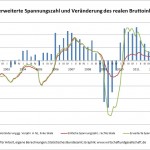Dear readers,
the following piece by Lauren Bari is the result of a chance encounter. About one and a half weeks ago three young women asked me for directions to Berlin´s famous Brandenburg Gate.
While we walked some of the way towards that direction I found out that they were from Ireland and Australia, and had just met each other in a Hostel nearby.
Finally, I dared to ask the Irish lady about the situation in her country, and I told her about my work and this online journal. She answered that she had a friend in Ireland who could really tell me something about the situation in Ireland, perhaps even write something. So I gave her my card when we said good bye to each other, saying that I would be very happy to hear from her friend in Ireland.
And what a surprise in this superficial world – it worked. Some days ago an email reached me from this friend of hers in Ireland. Her name is Lauren Bari. She has given a personal introduction to you, followed by her first column: A view from Ireland. And if we´re lucky, we´ll hear more from her soon.
Florian Mahler, editor and owner of Economy and Society – Analysis & Opinion (Wirtschaft und Gesellschaft – Analyse & Meinung, edited by Ursula Engelen-Kefer, Heiner Flassbeck, Manfred Maurenbrecher and Florian Mahler)
I am not an economist. I am a young Irish woman who, despite being highly educated, experienced and motivated, saw her prospects plummet during the economic crisis, ending up as I am now – reliant on a combination of part-time, minimum wage, casual work and state benefits. We have lived with austerity for six years and have accepted it without major disruption or protest, cursing the disastrous decisions of our former politicians but rarely questioning our loyalty to Europe. We watched as our government poured billions into insolvent banks while we, the citizens, endured unemployment, mass emigration, stagnation and cuts to vital community and social programmes. Over the coming weeks I will write a series of articles that attempt to show the reality on the ground in Ireland, removed from the media hype about bond-markets and a return to growth, a view that I hope represents, in some small way, the opinions and concerns of my peers.
Lauren Bari ()
The luck of the Irish: Denial, disengagement, disillusion – By Lauren Bari
We are a nation of optimists. Since the crisis began most people have seen it as the trough in a series of peaks and troughs, waiting for the situation to improve and for things to return to normal. This has meant, on a whole, that we have failed to address simple issues such as “where has all the money gone?”, instead shrugging our shoulders and sort of nihilistically accepting our history of corruption, cronyism and bad governance. Many see belt-tightening as unavoidable: we have been told that the country is in debt therefore the only thing to do is reign in spending and pay it back. When it comes to who we are paying back, why they lent to us in the first place, who has profited from the arrangement and who has lost, people are less clear. European fiscal policy, NATA, NAMA, promissory notes, bond-holders, bailouts, are words we hear daily but are presented to us in a way that is confusing, complicated and ultimately boring.
It is far easier to look to those in immediate view. Spurned by the media we have engaged in six years of finger-pointing and scapegoating, pitting the employed against the unemployed, the private sector against the public sector, those that regard themselves as upstanding citizens against the few that protest, failing to realise that responsible citizenship means addressing the holes in the system not remaining disengaged and apathetic. However, with job losses, emigration, higher taxes and cuts to government expenditure affecting nearly every household in the country, the problem has landed on our doorsteps, and we have begun to stir. Rocked by a series of corruption scandals, insulted by revelations about lies and cover-ups in the banking sector, ignored by government and weighed down by debt, Irish people have begun to ask questions. Optimism, while ever present, is mixed with suspicion and while scapegoating – fuelled in particular by tabloid newspapers – continues, we have started looking at Europe, democracy and our place in the Union.
Ireland’s exit from the troika is interesting from this perspective. Ceaseless in its attempt to keep us optimistic, the recent news of Ireland’s exit from the bailout programme has been exuberantly heralded by our mainstream media. The government has imposed successive European-driven austerity budgets onto its citizens and now we are being sold a success story, told that we have crossed some sort of hurdle on the road to economic recovery. Yet so far the news has been met with a mixed bag of cautious optimism, indifference and suspicion.
I asked a group of people about their opinions on the news that Ireland can now ‘go back to the markets’. “Lies, lies and more lies” said one man, “no one knows what is going on in the Irish banks, so nobody can say what’s what with any degree of certainty”. “The debt is still there” said another man, “we are still paying for that debt, so I see little difference”. “This is a foggy, red tape, rich-person-covering-rich person, bureaucratic recovery sponsored by Europe” said one woman, “I think there is a concerted effort to keep the Irish public in the dark”.
There was some cautious optimism in a minority of responses that I received. For example one man replied, “it’s great to regain some sense of sovereignty and for the country to be perceived as creditworthy again…but anything that implicitly ‘ok’s’ the travesty of the bank bailout is a bitter pill to swallow”. A young woman also replied, “troika policies achieved the opposite effect of what was pledged…with a disproportionate impact on young people….however if we are to move forward it is imperative that we move away from the failed model of the past and focus our attention on developing an economic strategy that will set out a new sustainable economic pathway back to prosperity”.
Overall, the people I spoke to were sceptical; sceptical of ‘more of the same’, worried about a system that promotes more debt and suspicious about who would ultimately profit. There is a perceived lack of legitimacy for the bailout in the first place, which people resent as having been misapplied and misspent. They blame corrupt politicians and lack confidence in the ability of the government to protect its citizens in the face of pressure from Europe, the bond-holders, the bankers or anyone else.
So, while some welcome any evidence of good news, for most, exiting the troika changes nothing. The hardships imposed on Irish citizens over the past six years are not going anywhere: troika style targets and austerity budgets will remain even after the State has formally left the bailout programme. As one man I spoke to said, “(it’s) meaningless. We still have to borrow, still have to repay bank debt and still have to implement troika policy. Smoke, mirrors, and bull***t”.
Follow Lauren Bari on
Like us on and follow us on .
Dieser Text ist mir etwas wert
|
|



 Alltag im Regierungsviertel
Alltag im Regierungsviertel